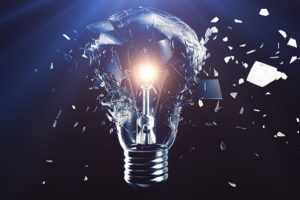The following post comes from David Ward, a 2L at Scalia Law and a Research Assistant at CPIP.
 By David Ward
By David Ward
Venture capitalists pouring money into a small startup has become a sort of new American Dream for many innovators. The success stories of big American companies starting with nothing more than an idea have pervaded their way into pop culture, inspiring TV shows, movies, and the like. Read more
 An oil well drilling rig is not an abstract idea. A method of operating an oil well drilling rig is also not an abstract idea. This proposition should be clear to all, but in
An oil well drilling rig is not an abstract idea. A method of operating an oil well drilling rig is also not an abstract idea. This proposition should be clear to all, but in  Following the Supreme Court’s four decisions on patent eligibility for inventions under
Following the Supreme Court’s four decisions on patent eligibility for inventions under  Last year I christened the post-Alice impact on patents #Alicestorm, riffing on the hashtag #hellastorm used to refer to the
Last year I christened the post-Alice impact on patents #Alicestorm, riffing on the hashtag #hellastorm used to refer to the  Today, there is significant public debate over patents on the digital processes and machines that comprise computer software programs. These are often referred to as
Today, there is significant public debate over patents on the digital processes and machines that comprise computer software programs. These are often referred to as